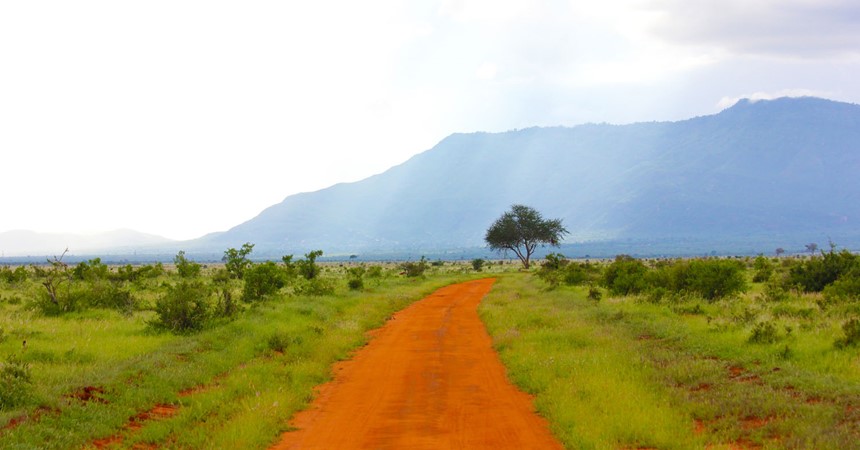The “Aussie Camino” was a chance to reflect on the life of Mary MacKillop and to be a witness to the values and faith that underpinned her great work, much of it carried out in the area between Portland and Penola, a small South Australian town of 1300 people. It was also a chance for me to reflect on my own life, which changed dramatically in 2008 when my wife of 15 years died of cancer. Since that first walk, I have been overwhelmed by the interest shown by people from around Australia, and I’m leading the tenth group in December. To this point over 200 people have walked the Aussie Camino.
I’m working behind the scenes to make the pilgrimage more accessible to other pilgrims. I’ve tried to set it up in a simple way, but it really belongs to whoever wants to do it. Hopefully it will take on a life of its own, as pilgrimages around the world have.
Ironically, it was a journey of sorrow during the preceding four years that, in some way, led me to the Mary MacKillop pilgrimage. Eight years ago, my 42 year-old wife, Gabrielle (Gay), was diagnosed with leukemia and died after an eight month battle. Gay and I were parents to Philippa, 21, Charlotte, 20 and Christopher, 18. For the next four years I was in a wilderness, struggling to maintain my family and my teaching. Gay became ill at the time when we were in between houses, I was in between teaching jobs and the kids were young. When she died, I was distraught and it felt like my whole world ended. For a long time I was living in a bit of a daze. The first two years after Gay’s death were really bad. The third year was one step forward, two steps back. By the fourth I slowly began putting my life back together. The walk came about by chance at a time when I was starting to feel I had the energy to take on something.
In 2013, with my friend and colleague, Steve Murphy, I watched the film The Way − and the seeds of the Aussie Camino were sown. We began having some really good discussions about the Camino in Spain, but for various reasons, including finances, that sort of trip was a few years away for us. We both had school-age children and it seemed an eternity until we would be able to travel to Spain. Then I began talking to another couple I worked with, who had done the Camino de Santiago, and the Aussie Camino idea really developed. Why can’t we have one of our own, now that we have our own saint?’
I became interested in pilgrimages throughout history and how this interest might translate to a camino in Australia. Mary MacKillop and the land where she spent her early years seemed an ideal starting point. Pilgrimages all over the world end in a sacred place. Our destination was Penola, widely accepted as the birthplace of Mary’s congregation, the Sisters of St Joseph. I loved the idea that it was out of the major cities. Connecting to the outback puts it in a very Australian environment and draws the pilgrims. I believe that in being a pilgrim, one declares one is open to connecting to others. For some, that is a desire to connect more closely to God; for others it is finding meaning in one’s life. Often the camino can serve as a catalyst through the events along the way, meeting fellow pilgrims and discovering God’s work in the beauty of the environment through which you walk.
With another colleague, Michael Dillon, we chose a route that Mary MacKillop almost certainly didn't travel. However, at some stage Mary would have passed through all the towns we visit. From Portland (Vic) we walk to Nelson, Port MacDonnell, Mt Gambier, Kalangadoo and finally Penola. Portland was chosen as the start of the camino because it was Mary’s last teaching post as a lay woman.
We three pilgrims walked some 30km each day, beginning with a short reading or reflection about Mary MacKillop and a hearty buen camino! in the main street of each town. At night we stayed in pubs and enjoyed the hospitality of the locals. Telling people that we were pilgrims certainly did raise some eyebrows, but once people got to know us we could get into some interesting conversations. Being a pilgrim is a public display of one’s faith. It is both an active and passive gesture. Pilgrims don’t make much fuss. We eat, drink, talk, sleep and then we’re back out on the road early the next morning.
The pilgrimage was not overtly Catholic, because in the end it’s a personal journey. My journey is ongoing, but the pilgrimage gave me a focus and a sense of excitement that has been fostered by continual support and interest from other pilgrims. I’m a teacher and a father of three children, so I don't have much time. But I can do this and I enjoy it and I look forward to its being taken over by pilgrims who make it their own. It would be good to have the pilgrimage and shelters signposted. This will come as more and more people make the journey. Each pilgrim builds it for those who follow. Such is the history of pilgrimages since their origins over 1000 years ago.
One of the groups this year arrived in time for the celebrations for the 150th anniversary of the Sisters of St Joseph in Penola. It was a great occasion with hundreds of people from all over the country making their way to Penola.
I believe many people are interested in the Aussie Camino because it is a good news story, when the Church has been in the headlines for all the wrong reasons. In Australia, in our rush to be a secular society, a lot has been lost and this is a way of reclaiming the good. Mary MacKillop is our one and only saint, not just for Catholics but all Australians.
Please visit the Aussie camino website to learn more.























































































